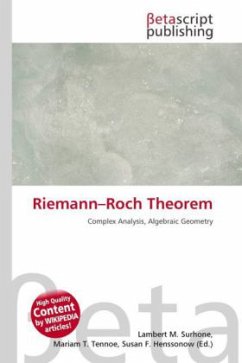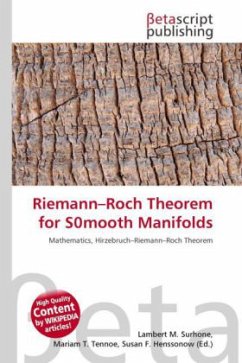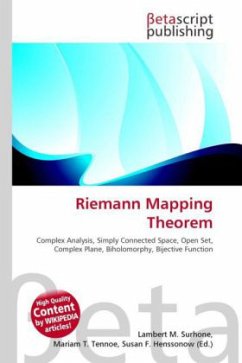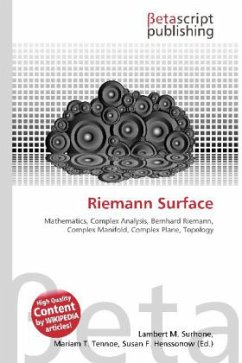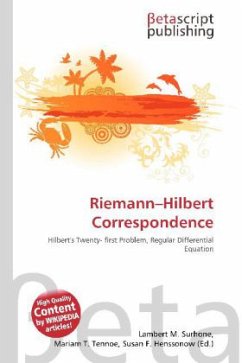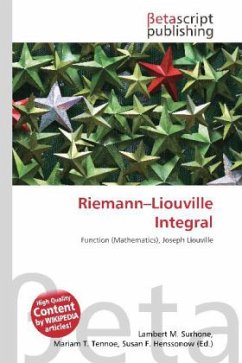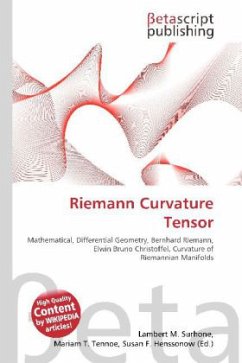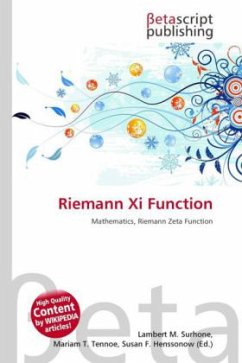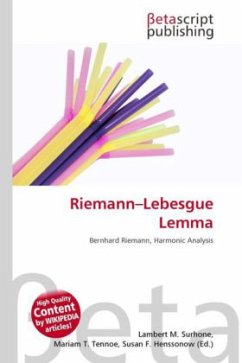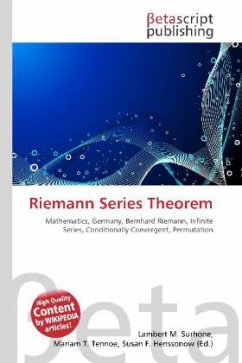
Riemann Series Theorem
Versandkostenfrei!
Versandfertig in 6-10 Tagen
30,99 €
inkl. MwSt.

PAYBACK Punkte
15 °P sammeln!
Please note that the content of this book primarily consists of articles available from Wikipedia or other free sources online. In mathematics, the Riemann series theorem (also called the Riemann rearrangement theorem), named after 19th-century German mathematician Bernhard Riemann, says that if an infinite series is conditionally convergent, then its terms can be arranged in a permutation so that the series converges to any given value, or even diverges.The terms of the series are often produced according to a certain rule, such as by a formula, or by an algorithm. As there are an infinite nu...
Please note that the content of this book primarily consists of articles available from Wikipedia or other free sources online. In mathematics, the Riemann series theorem (also called the Riemann rearrangement theorem), named after 19th-century German mathematician Bernhard Riemann, says that if an infinite series is conditionally convergent, then its terms can be arranged in a permutation so that the series converges to any given value, or even diverges.The terms of the series are often produced according to a certain rule, such as by a formula, or by an algorithm. As there are an infinite number of terms, this notion is often called an infinite series. Unlike finite summations, infinite series need tools from mathematical analysis to be fully understood and manipulated. In addition to their ubiquity in mathematics, infinite series are also widely used in other quantitative disciplines such as physics and computer science.



